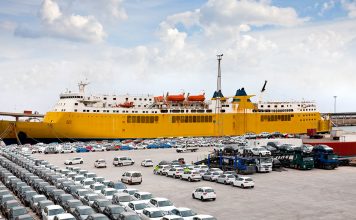Drivers who frequently commit traffic offences are more likely to be punished, pay high premiums and lose their licences under a new smart card system.
National Transport and Safety Authority director general Francis Mejja yesterday said the government has rolled out smart driving licences to profile rogue motorists and improve road safety.
He said the licences will be introduced in two months. The Sh2.1 billion contract was won by National Bank and will see 500,000 licences produced in a year.
Mejja said 200,000 pieces will be produced in the first two months. “These licences will be small, more or less like an ATM card and will have high-security features. It will have a chip that will contain the driver’s biometrics,” he said.
There are about five million licensed drivers who use paper licences that can easily be counterfeited.
Mejja said the new licence will capture driving records of all drivers, which will then be shared with insurance firms. The companies will impose high premiums for drivers who frequently commit offences.
“We are in discussion with insurance industries. If you are a high-risk driver, the premiums you pay must be high,” he said.
Mejja said many drivers whose licences have been confiscated for violating traffic rules are using fake documents.
“If you are a driver and you want to seek employment somewhere, your employer will know your habits on the road. If you commit serious offences, then your licence will be withdrawn,” Mejja said.
The director general spoke at Laico Regency Hotel during a forum to improve road safety in Nairobi.
Statistics released by the agency show the number of deaths in road accidents declined by 30 per cent in Nairobi last year. In 2015, 668 people died on city roads, compared to 461 last year.
Mejja attributed the reduction to hiring more traffic marshals and erection of barriers to bar pedestrians from crossing at unauthorised points.
The number of pedestrians struck on roads in Nairobi dropped from 497 in 2015 to 299 in 2016.
He appealed to corporate organisations to help in erecting guard rails on high-risk roads to reduce road accidents. Some of the high-risk roads in Nairobi are Thika Superhighway, Mombasa Road, North Airport, Jogoo, Ngong and Landhies Roads.
Nationally, the road deaths reduced from 1,344 in 2015 to 1,097 last year.
Meanwhile, the NTSA said most fatal road accidents occur from 5pm to 10pm on Fridays and Saturdays and cited “drunk-driving, drunk-riding and drunk-walking”. Mejja said most people travel during weekends and do not observe traffic rules.
“Motorcyclists operate at night without the right gear, including reflective jackets. Motorists do not see them,” he said. Mejja said the accidents also result from poor driving habits and skills and lower night visibility.
He added that motorists also use unfamiliar routes while attending social functions. “Pedestrians cross at undesignated areas and easily get knocked down by speeding vehicles,” he further said.



![Top 20 Used Cars to Avoid Buying in Kenya Đ [PHOTOS]](../../../blog/wp-content/uploads/2013/11/top-used-unreliable-cars-to-avoid2-80x60.jpg)


![Top 20 Used Cars to Avoid Buying in Kenya Đ [PHOTOS]](../../../blog/wp-content/uploads/2013/11/top-used-unreliable-cars-to-avoid2-100x70.jpg)



